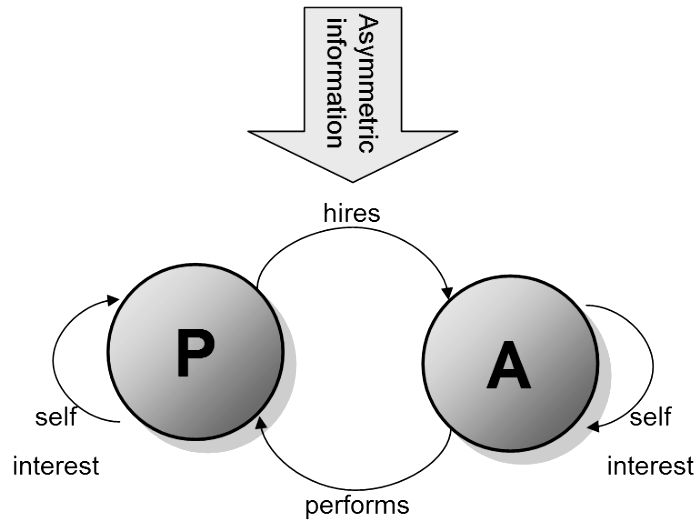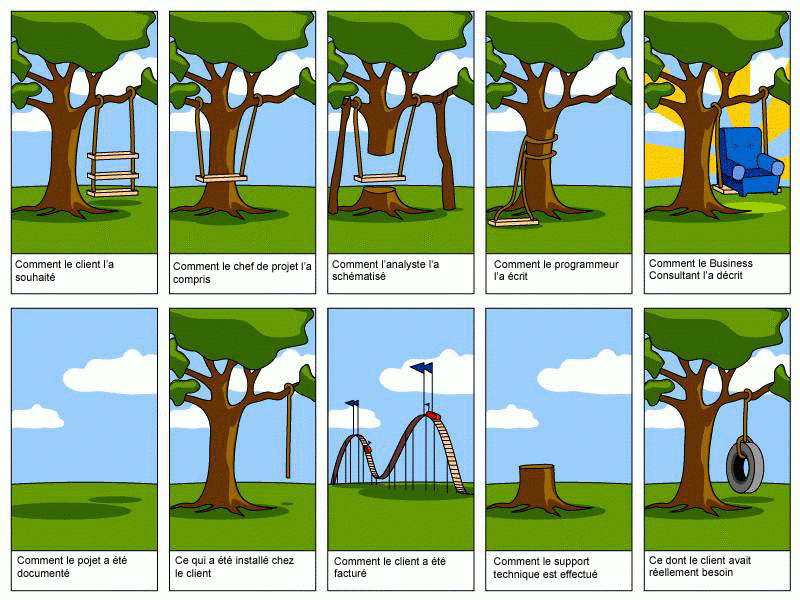You have a funding, A project, and an internal team dedicated to project management. Either. Now all your attention turns to the project development, and as a good entrepreneur who monitors his costs and who wishes to call on experts, you have launched a call for tenders and found external collaborators (freelancers, consultants, off-shore teams) to take care of the development of your project at the best price and with the right expertise. In other words, you have outsourced the coding, design or any other part related to the development of your project.
But then, how can you be sure that the coding will be done according to your interests, namely that:
– you will be able to recover access to the technical function at any moment ;
- THE time allocated for the work is calculated on the basis of honest and realistic;
– maintenance is carried out according to real needs and estimated in terms of cost commensurate with these real needs;
- etc…
Most web developers, particularly in France, stand out for their quality, professionalism and integrity. All you have to do is take a look at the portfolio to know if the team you want to outsource your web development to is trustworthy or not.
But it may happen to call on off-shore developers, for cost reasons, for more one-off missions or more frequently for their immediate availability. Therefore, if there is not a real partnership relationship between the principal and the service provider, risks linked to agency effects can show up. Let's see which ones and how to limit them, after briefly recalling what the agency dilemma is.
Do you have a business and want to regain control of your margins and your business model? Discover my solution Ultimate Business Dashboard which transforms your raw accounting data into performance indicators and a monthly dashboard.
Note: This chapter is the 9th in a series of course on Management 2.0, the summary of which can be found here.
Reminder on agency theory
THE agency dilemma models the contract by which the principal hires an agent to carry out an assignment on his behalf. This mission involves a delegation of a certain power to the agent. Example: Employer and employee, shareholder and manager.
Therefore, there is a sort opposition of interest between the principal and the agent because the principal seeks to maximize his capital (the benefits linked to the delegated mission) and the agent to invest a part of his capital in exchange for which he carries out the mission. This divergence of interests will result in two types of contradictory actions:
– The principal will have to reveal part or all of the information related to the project in order to allow the agent to carry out the mission: example of the monitoring committees set up by shareholders on company directors following the financial crisis .
– The agent will want maintain decision-making power and the benefits that come with it.

Consequently, this so-called agency relationship results in monitoring costs, intended to limit the following risks:
– information asymmetry : example of the customer and the mechanic. Obviously, this risk is taken into account because this asymmetry of information is the basis of the contract, since we delegate because we consider the agent to be certainly more available, but also more competent to carry out the mission.
– moral hazard : non-compliance with agreements made in the contract.
– anti-selection : choice by the principal of a service of lower quality, and free rider situation for the agent. The latter being at the heart of the operation can manipulate the information under his control and only communicate to the principal what serves his interest, rather than that of the principal.
For information, the agency relationship is the basis of the policy of corporate governance, a current trend which consists of giving power back to shareholders (shareholders) rather than managers, by allowing the former to have a right of control over the actions taken by the latter, on the basis of the postulate according to which the interest of shareholders serves the interest of stakeholders (stakeholders: employees, suppliers, partners, environment, etc.).
The agency relationship in e-business
 Now that we have put the ideas back in place about the agency relationship, we can easily make the analogy with theoutsourcing.
Now that we have put the ideas back in place about the agency relationship, we can easily make the analogy with theoutsourcing.
By subcontracting its information system or the development of its website, intranet or extranet, we delegate part of the technical decision-making power to teams. Therefore, this contract between the company and the subcontractor inherently creates an agency relationship, in which the principal (the company or management) will seek to have complete visibility on the information processed by the agent (the subcontractor or the IT department), while the agent will benefit by nature from an asymmetry of information in its favor, on which he will be able to play in negotiations or to maintain strategic control over the company.
This leads us to wonder how to limit the risks and costs produced by this agency relationship, particularly for digital-related missions.
10 tips to reduce risks
Define clear, exhaustive and forward-looking specifications

Without falling into counterproductive over-information, it is about to expect all situations and needs upstream, trying to highlight the obvious and implicit situations. Let me explain with a very simple example: if in your needs you mentioned a user connection form, you must explain the different possible situations to foresee for the developer, from the loss of the password to the message of error if the identifiers are not recognized. The idea is to be meticulous and not tell yourself that the developer must plan what seems obvious to you, because he has enough work to have to do that.
It is possible, for complex projects, to call on modelization to communicate our needs to developers.
Develop a partnership relationship rather than a hierarchical one
Even if the law may prove you right, it is sometimes better to avoid conflicts when there are misunderstandings or incomprehensions. Indeed, even in the “employer – employee” relationship, we are gradually leaving management through obedience and presenteeism to move towards a collaborative relationship characterized by research and the development of talents and creativity. In this context, it seems inappropriate to lecture experts to whom you have entrusted a mission.
Therefore, rather than playing on working hours in the contract, it is better to focus the latter on quality of work rendered, the setting deadlines according to a realistic but somewhat flexible forecast schedule, the existence of a small margin of maneuver and a flexibility granted to the technical team whether in terms of hours but also and above all in terms of initiative and creativity, the commitment to work on the long term if the work is deemed effective, and the public highlighting of your collaboration (if you have no interest in hiding who your subcontractor is).
By prioritizing collaboration, you will gain more information than by obligation.
Use the same information systems
I mentioned this point in my article on selection of suppliers based on mastery of information systems : to allow good communication between the project manager, project owner and supplier of technical solutions, everyone must use the same language, on the same software. It is therefore necessary to ensure that standardize information systems used, and to use language understood by all if not translated by competent key people.
Schedule debriefing meetings
It may seem silly, but some SMEs order their site and wait for it to fall from the sky, without ever following the file closely or remotely. It is therefore necessary to provide meetings formal for monitor the progress of the project (in real life or by videoconference), and invite the parties concerned to these meetings according to the points raised (lawyer, marketing project manager, content management assistant, etc.).
Appoint a project manager
Internal or consultant, you entrust him with the monitoring of project development. He generally has an interest in the mission going well because you are entrusting him with a responsibility, and he is employed by you.
It is necessary to ensure that the project manager is an expert in the field considered, and that he can to understand And you translate the language engineers use, especially if they are based overseas and have a ton of other clients.
Prepare your exit
Whatever happens, you must always prepare for your outing, because you never know what tomorrow will bring. You must therefore negotiate, from the start, access to all backoffices, total transparency on the identifiers used, permanent backups, access to logs (archives), statistics, etc.
If you wish to change service provider or recover the information, this must be possible quickly and at any time. So you need to expect all situations, and ask for the greatest transparency possible to your service provider.
Do not accept evasive answers and non-performance of the contract
Although collaboration must be favored over hierarchical relationships, it goes without saying that an employee who withholds information is not a good employee. If you encounter this problem on a recurring basis, don't get bogged down by begging the agent to provide you with the information: be firm, clear but always polite, ensuring compliance with legislation.
In the event of non-compliance with clauses defined in the contract, protect your back by asking a lawyer or jurist to assist you in certifying the evidence on this non-compliance and on the path to take. Never act with passion, always with composure and foresight, and build your file which shows the bad faith of the subcontractor.
Take filmed tests or screenshots
It often happens that a module does not work as requested. By reporting errors to technicians, they may not be able to reproduce these errors. To avoid any misunderstanding which would lead to a deterioration of your relations, I urge you to always film your tests or to take screenshots of the problems encountered during the tests, in retailer chronologically how you arrived at these bugs, and with what type of hardware.
Trust your subcontractor
Or how not to create a tense situation even when there is no problem, through excessive distrust or confirmation bias. You should not suspect the person who should become your technical partner for reasons that do not concern them, such as a bad experience with a former developer for example. Always leave optimistic and show confidence in your technical team, in order to create a certain level of commitment.
Involve the service provider in your strategy
The involvement of your service provider in your strategy certainly creates a dependence on them at first glance, but if transparency and communication of information are established, then this will allow the sharing of a common objective and a virtuous dependence, namely that if your business is doing well, your service provider will reap the benefits through an increase in orders and missions.
Therefore, by communicating about your objectives, you involve engineers in developing a common strategy, which pushes the technical team to communicate about how they work and give you the information you need.
Be careful, however, this last point must be handled with great care: you must know how to protect confidential strategic data, and preserve a certain level of independence in order to influence the negotiation.
Chapter 10: The two main types of web communication for VSEs »
“Chapter 8: Culture of innovation, how to digitalize an organization from the inside?





